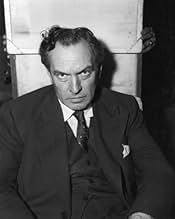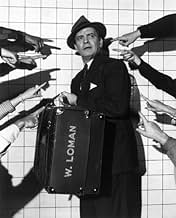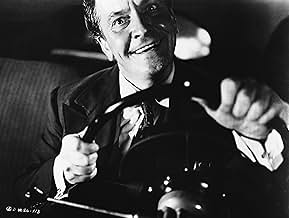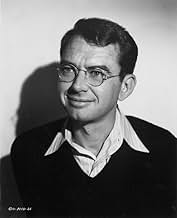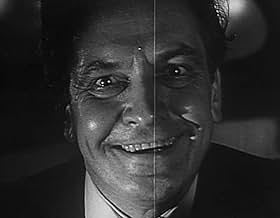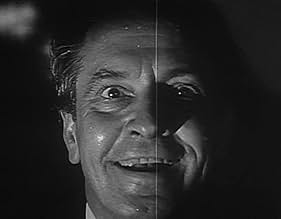IMDb RATING
7.2/10
1.3K
YOUR RATING
An over-the-hill salesman faces a personal turning point when he loses his job and attempts to make peace with his family.An over-the-hill salesman faces a personal turning point when he loses his job and attempts to make peace with his family.An over-the-hill salesman faces a personal turning point when he loses his job and attempts to make peace with his family.
- Director
- Writers
- Stars
- Nominated for 5 Oscars
- 8 wins & 11 nominations total
Beverly Aadland
- Girl
- (uncredited)
Jeanne Bates
- Mother
- (uncredited)
Gail Bonney
- Mother
- (uncredited)
Roger Broaddus
- Boy
- (uncredited)
Paul Bryar
- Subway Guard
- (uncredited)
Patricia Edwards
- Letta
- (uncredited)
Elisabeth Fraser
- Miss Forsythe
- (uncredited)
Charles Morton
- Subway Passenger
- (uncredited)
- Director
- Writers
- All cast & crew
- Production, box office & more at IMDbPro
Featured reviews
In his autobiography, "Timebends," playwright Arthur Miller says he was pleased with this version of "Salesman" and felt that Fredric March was effective as Willy. I would love to make that determination for myself. I have always been a big fan of March, and the rest of the cast all seem ideal choices for their roles. I don't believe it is in TCM's library. I think it deserves a DVD release, as does the 1966 (German?) version of "The Crucible."
I check on the DVD availability of this version of "Salesman" every now and then, as well as the 1949 version of "The Great Gatsby" with Alan Ladd, along with some other films that are (surprisingly) not on DVD, such as "Last Year At Marienbad" and "Sundays and Cybele." Good things come to those who wait.
Indeed, even if you have to wait seven years. The Fredric March version of "Salesman" made its way to YouTube in October, 2014. The print is not very good, but the movie is fine. March is wonderful, even if he does start out the movie at something of a fevered pitch rather than working up to it, as another reviewer says. The two sons, Biff and Happy, are such ne'er do wells and so dishonest that they are thoroughly unsympathetic. Kevin McCarthy and Cameron Mitchell play them to perfection. Mildred Dunnock's Linda may be the best performance in the movie. She mediates, observes, cajoles, admonishes, plays on sympathies, comforts and encourages. It's amazing how many dimensions there really are to this character, and Dunnock finds and plays them all beautifully. "Death of a Salesman" is so stagebound that it's hard to find ways to open it up for the screen, so why bother? The story and performers draw audiences in to "Salesman," and because the subject matter is so unremittingly bleak and despairing, the acting has to be of a very high caliber to sustain interest. This is a feat the 1951 movie version pulls off handsomely.
I check on the DVD availability of this version of "Salesman" every now and then, as well as the 1949 version of "The Great Gatsby" with Alan Ladd, along with some other films that are (surprisingly) not on DVD, such as "Last Year At Marienbad" and "Sundays and Cybele." Good things come to those who wait.
Indeed, even if you have to wait seven years. The Fredric March version of "Salesman" made its way to YouTube in October, 2014. The print is not very good, but the movie is fine. March is wonderful, even if he does start out the movie at something of a fevered pitch rather than working up to it, as another reviewer says. The two sons, Biff and Happy, are such ne'er do wells and so dishonest that they are thoroughly unsympathetic. Kevin McCarthy and Cameron Mitchell play them to perfection. Mildred Dunnock's Linda may be the best performance in the movie. She mediates, observes, cajoles, admonishes, plays on sympathies, comforts and encourages. It's amazing how many dimensions there really are to this character, and Dunnock finds and plays them all beautifully. "Death of a Salesman" is so stagebound that it's hard to find ways to open it up for the screen, so why bother? The story and performers draw audiences in to "Salesman," and because the subject matter is so unremittingly bleak and despairing, the acting has to be of a very high caliber to sustain interest. This is a feat the 1951 movie version pulls off handsomely.
This all but lost 1951 version of Arthur Miller's American masterpiece was nominated for several prestigious Academy Awards in 1952, including Best Picture. That it has never been officially released on video is a shame, for, quite simply, Fredric March's go around as Willy Loman is a absolute treasure. The supporting cast are uniformly excellent; the mood and tone are consistently melancholy; the sets are spare, even stagy; and, most important, the pace is as brisk as this play will allow. Please search out this one out on TV-- you will not be disappointed.
The main question is, how does the Fredric March version stack up against the Lee J. Cobb version. The answer is very well; it's probably a dead heat. Lee J. Cobb's performance has long been legendary, but March's was a little more emotionally authentic and agonizing.
Some critics objected that his Willy made the man seem insane and that insanity would rule out tragedy as the genre of the play/film. But King Lear went mad in the course of the play, and Strindberg's The Father involves madness in the protagonist. There is no point denying the evidence of the play itself in order to satisfy a theoretical rule that, at the same time, is violated in other plays. And the main evidence is that Willy got so involved with his memories that some of them became hallucinatory, especially in the office scene after he was let go from his job. Yes, there were numerous flashbacks in the play, but other scenes from the past took place in his mind and at times he became disoriented, talking loudly to absent characters such as his brother.
I found the Dustin Hoffman version not on the same level as the Fredric March or Lee J. Cobb version. Hoffman pushed method acting too much and was too young to portray a man in his early sixties.
I saw the Fredric March version in 1951 or 1952. Because of Arthur Miller's defiance of HUAC, the American Legion picketed the film and it was rarely if ever screened after that, until it was reissued as a DVD quite recently.
Some critics objected that his Willy made the man seem insane and that insanity would rule out tragedy as the genre of the play/film. But King Lear went mad in the course of the play, and Strindberg's The Father involves madness in the protagonist. There is no point denying the evidence of the play itself in order to satisfy a theoretical rule that, at the same time, is violated in other plays. And the main evidence is that Willy got so involved with his memories that some of them became hallucinatory, especially in the office scene after he was let go from his job. Yes, there were numerous flashbacks in the play, but other scenes from the past took place in his mind and at times he became disoriented, talking loudly to absent characters such as his brother.
I found the Dustin Hoffman version not on the same level as the Fredric March or Lee J. Cobb version. Hoffman pushed method acting too much and was too young to portray a man in his early sixties.
I saw the Fredric March version in 1951 or 1952. Because of Arthur Miller's defiance of HUAC, the American Legion picketed the film and it was rarely if ever screened after that, until it was reissued as a DVD quite recently.
This is the version people of my generation grew up on; it played on TV in the 50's, and being black and white non-widescreen and uncensorable, what we saw was what was filmed. Frederick March hammmed it up a bit, but in retrospect the play itself is hammmy (emotion-charged). It has been said Arthur Miller disliked the film, particularly the realistic representation of Willie's reveries and imaginings. Kevin McCarthy did a fine job as Biff. I loyally refused for years to watch Dustin Hoffman's version, but when I finally gave in I enjoyed his substantially different interpretation. But if he differed from March, then it follows March differs from him. In short, a whole other way of enjoying the greatest American soap opera ever penned.
For reasons unknown to me, this version of the film has been unavailable for years. When I finally was able to view it recently, I thought it was excellent, and that Frederic March was the ideal Willy Loman. Played on Broadway by Lee J. Cobb, George C. Scott and Brian Dennehy, powerful men with powerful presences, the role has the potential to make Willy's downfall extremely dramatic, a testament to how far the mighty can fall. But in Frederic March, we better see his inherent weakness, and believe his corruption. We're not tricked into believing that his life's work was ever worthwhile, that it just fell on hard times. Instead, we see that his life was a lie from the beginning, which is what I believe the play intends.
Dustin Hoffman, another great actor, also famously played the role on Broadway and in the TV version of that production, widely available on video and therefore perhaps the version most viewers are familiar with. His interpretation was quirky and unreal, a character actor playing the lead in a modern take on a Greek tragedy, and it didn't work for me. But no matter how you feel about the play and the role, if you can catch this Frederic March version, do so; you won't regret it.
Dustin Hoffman, another great actor, also famously played the role on Broadway and in the TV version of that production, widely available on video and therefore perhaps the version most viewers are familiar with. His interpretation was quirky and unreal, a character actor playing the lead in a modern take on a Greek tragedy, and it didn't work for me. But no matter how you feel about the play and the role, if you can catch this Frederic March version, do so; you won't regret it.
Did you know
- TriviaAccording to Arthur Miller, in a 2000 essay entitled, "Are You Now Or Were You Ever?" Columbia asked Miller to sign an anti-Communist declaration to ward off the threat of picket lines by the American Legion at theaters showing "Death of a Salesman". He refused. Instead, Columbia made another movie, a short film entitled "Life of a Salesman" to be shown with it. The short consisted of business professors from City College praising sales as a profession, and denouncing the character of Willy Loman. Miller wrote: "Never in show-business history has a studio spent so much good money to prove that its feature film was pointless."
- ConnectionsFeatured in Prêt-à-jeter (2010)
- How long is Death of a Salesman?Powered by Alexa
Details
- Release date
- Country of origin
- Official site
- Language
- Also known as
- Death of a Salesman
- Production company
- See more company credits at IMDbPro
- Runtime
- 1h 55m(115 min)
- Color
- Aspect ratio
- 1.37 : 1
Contribute to this page
Suggest an edit or add missing content

